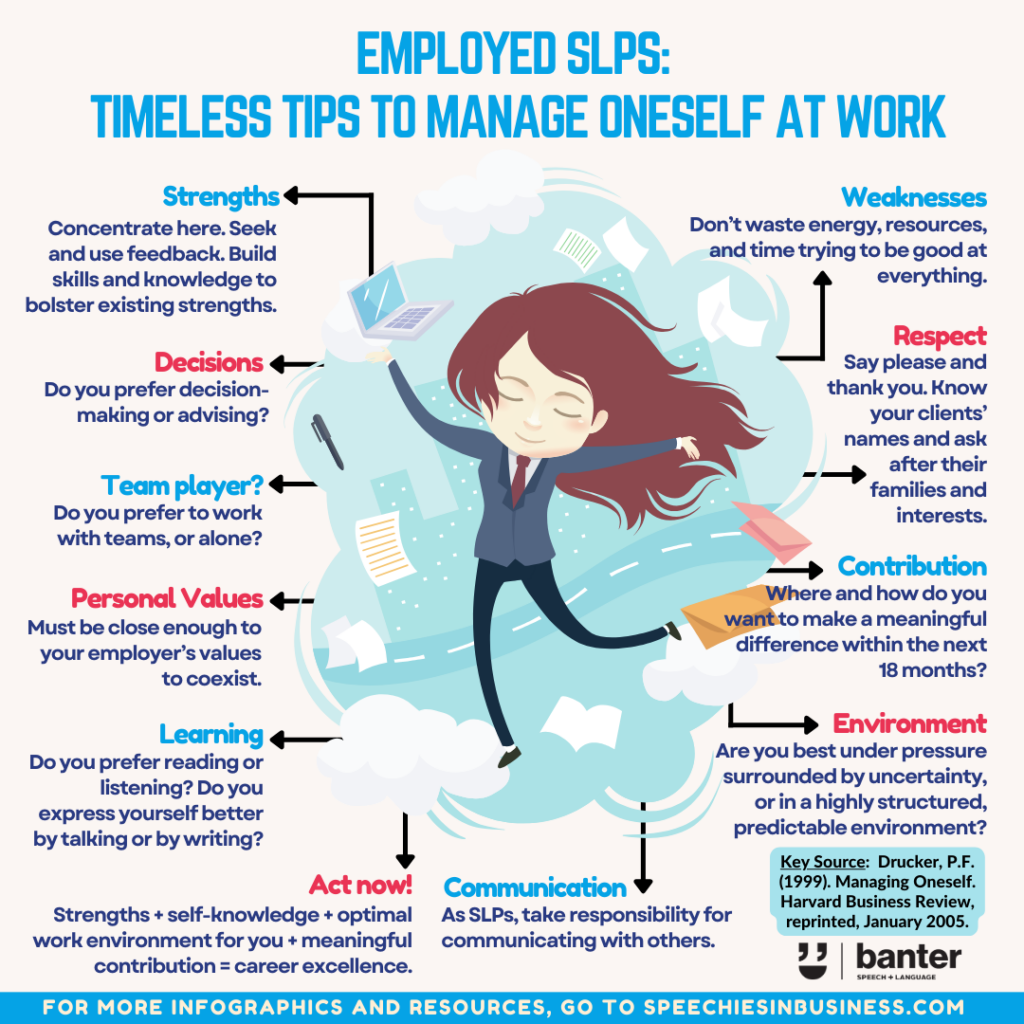Employed speech pathologists: timeless tips to manage oneself at work
- Strengths: Concentrate here. Seek and use feedback. Build skills and knowledge to bolster existing strengths.
- Weaknesses: Don’t waste energy, resources, and time trying to be good at everything.
- Respect: Say please and thank you. Know your clients’ names and ask after their families and interests.
- Learning: Do you prefer reading or listening? Do you express yourself better by talking or by writing?
- Team player? Do you work well with teams, or alone?
- Decisions: Do you prefer decision-making or advising?
- Environment: Are you best under pressure surrounded by uncertainty, or in a highly structured, predictable environment?
- Personal values: Must be close enough to your employer’s values to coexist.
- Contribution: Where and how do you want to make a meaningful difference within the next 18 months?
- Communication: As speech pathologists, take responsibility for communicating with others.
- Act now: Strengths + self-knowledge + optimal work environment for you + meaningful contribution = career excellence.

Key source: Drucker, P.F. (1999). Managing Oneself. Harvard Business Review, reprinted, January 2005.
For information on supervision, check out our book “How to supervise speech pathologists properly in private practice“.








